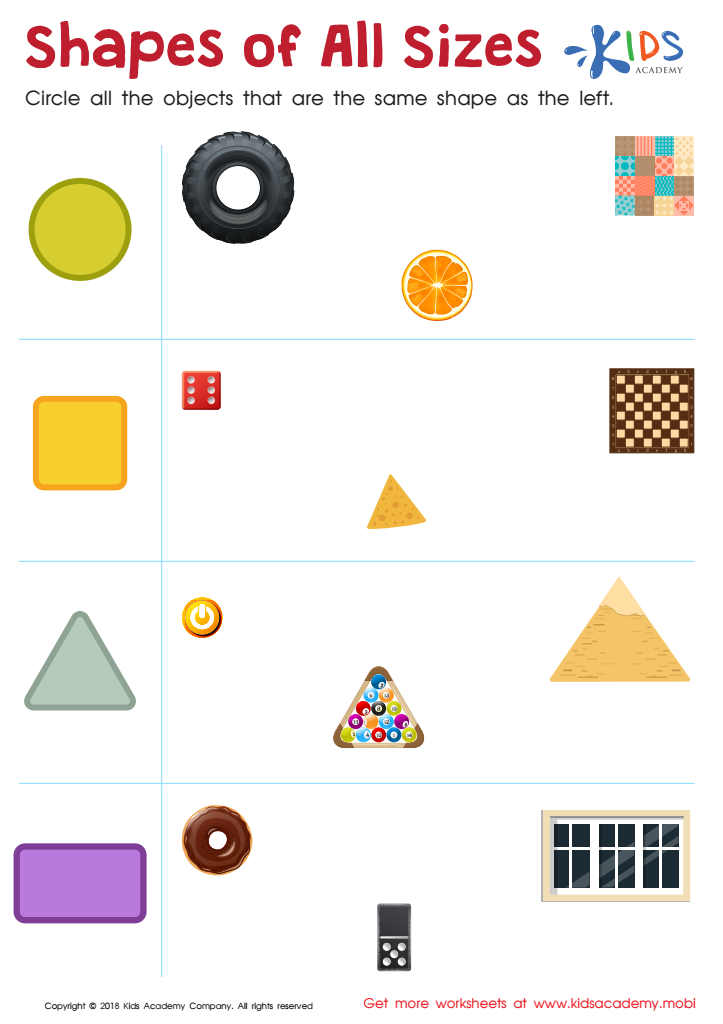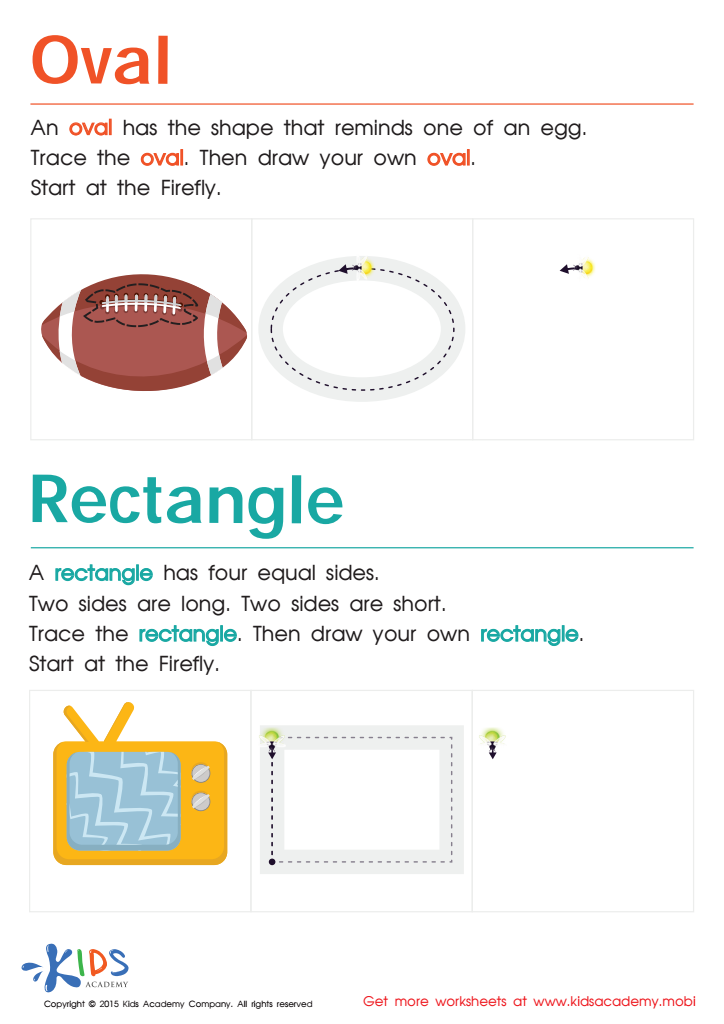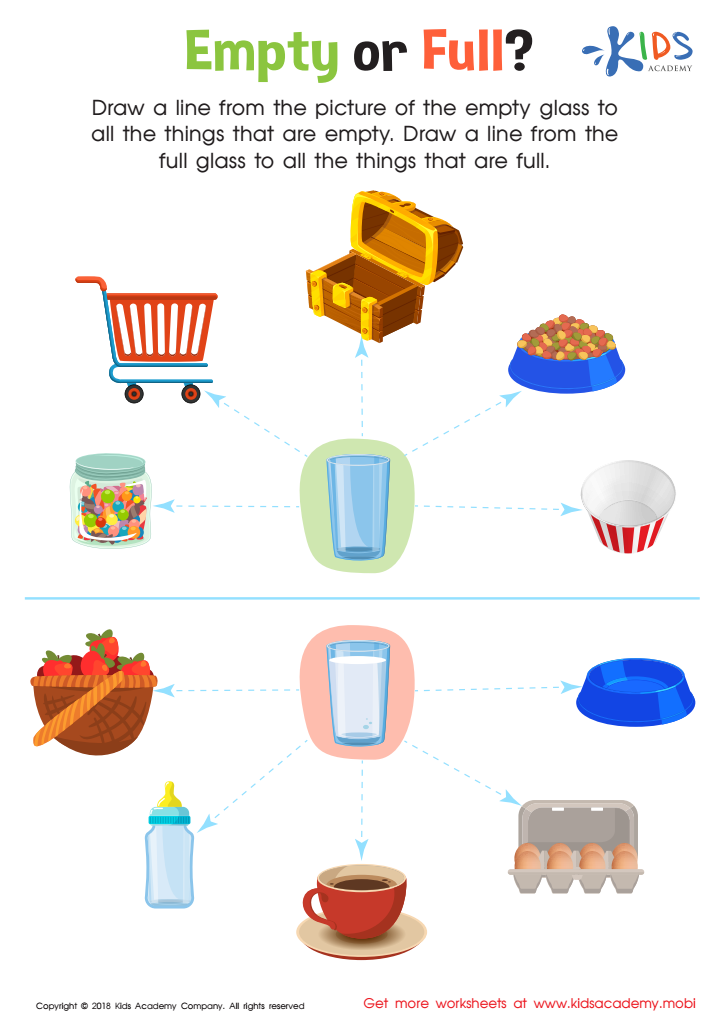Visual Perception Skills Normal Math Worksheets
3 filtered results
-
From - To
Enhance your child's learning journey with our "Visual Perception Skills Normal Math Worksheets." These engaging resources are designed to improve essential visual perception skills, helping young learners better understand and interpret visual information in math. Our carefully crafted worksheets include a variety of exercises that foster critical thinking, attention to detail, and problem-solving abilities through fun, interactive activities. Ideal for early grade teachers and parents, these worksheets support the development of foundational math skills while promoting cognitive growth. Boost your student's confidence and proficiency in mathematics today with our easy-to-use, printable visual perception skill worksheets, tailored for early learners’ success!


Shapes of All Sizes Worksheet


Easy Drawing of Ovals And Rectangles Worksheet


Empty or Full? Worksheet
Visual perception skills are crucial in early education, particularly in subjects like math. These skills involve the ability to interpret and make sense of visual information, which is fundamental for tasks such as counting, recognizing shapes, and understanding spatial relationships. When children have strong visual perception skills, they can better grasp math concepts, leading to improved problem-solving abilities and a deeper understanding of mathematical operations.
Teachers and parents should care about developing these skills because early math proficiency lays the foundation for future academic success. Children with strong visual perception are more likely to excel in math, as they can visualize problems and solutions effectively. Furthermore, visual perception enhances spatial awareness, which is essential not only in math but also in areas later in life, such as science and technology.
Investing time in activities that bolster visual perception skills, like puzzles and shape sorting, can be beneficial. Recognizing the importance of these skills encourages a holistic approach to math education, fostering not just cognitive development but also a positive attitude toward learning. Ultimately, this support allows children to build confidence and competence in math, equipping them for future educational challenges.
 Assign to My Students
Assign to My Students















